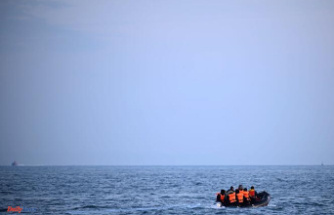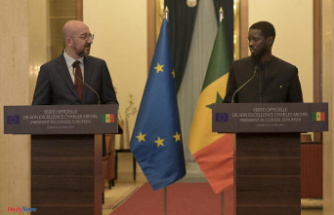After numerous collaborations of Antonio Serrano with the pianist and singer Croatian Oliver Dragojević , the harmonica player in jazz, he came, through the director of the Festival of Classical Music in Sarajevo, a proposal uplifting: giving a recital classic in the festival. Hands to the work, Serrano decided to join the classical pianist Constanza Lechner to star in a gala at the piano, and harmonica to go through some of the great works of the composers of reference in their respective countries, Spain and Argentina. Thus, compositions of Pomegranates , Fails , Trough , Guastavino and Piazzolla is included in a concert, the fruit of which grew out of "Classical Spanish and argentine" (Kamala, 2018), which is present today in the Fine Arts Circle of Madrid.
How was this project born?
Antonio Serrano : I know Conie (Constanza Lechner) since many years ago, seeing her in his house when he went to rehearse with his brother Frederick, also a pianist. She was interested in classes of improvisation, and I in piano lessons classical, so we decided to swap classes and during those sessions a day, we decided to play something with harmonica and piano. We played the "Waltz of the minute" Chopin and we liked it, there was chemistry from the very beginning. There was a thing till that little time I was commissioned from the classical music festival of Sarajevo a recital classic. And as I didn't have at that moment no project of this type quickly thought of her. We liked it so much and had such a good time that we decided to burn the disc.
How they selected the repertoire?
A. S. : As we had to introduce ourselves for the first time in Sarajevo, we decided to select part of the repertoire of argentinean and Spanish. And there we start to choose compositions that on the one hand we were family and by other composers that we liked, such as Carlos Guastavino, which I knew not, and that turns out to be one of the most emotional of the disk. Then, to Failure I had played when I was small. And Sarasate she has performed many times with the National Ballet of Spain. Piazzolla is common to the two, because I recorded a tribute album to his figure (Armonitango, 2007) and she has also played a lot with Fernando Egozcue. We wanted to find on the one hand a repertoire that was not completely new, but that made sense and that out-of-composers important that we represent them in any way.
have Also selected compositions by Carlos Guastavino, a composer to claim.
Constanza Lechner : Out of Argentina, despite the fact that "the wrong pigeon" known all over the world, nobody knows that it is a composition of Guastavino. I wanted to pay a small tribute because he is a great composer who was unconventional in his time, because they were the years of the avant-garde, of discords, of the lack of melody recognizable, and he was a great defender of the same. He himself affirmed: "I forgive the avant-garde but I like the melody, that you will understand the tune". In reality he was a romantic. My grandmother played his songs when I was little and I still own the original scores, which are the I use when I play live.
How is arranged to harmonica and piano, a piece written only for piano or for piano and orchestra?
A. S. : I've Always tried to focus on the orchestra, what are the colors that are inside of it. The harmonica is an instrument with many nuances and which can be used to make chords, octaves, double notes,... in such a way that I thought of it in the manner of a violin, since the violin does all that kind of stuff. Within the possibilities of the instrument I try to find effects, trills,... that can emulate the orchestra as much as possible.
What do you think you would think the classical composers if you were to listen to these versions of their compositions?
A. S. : I Am very happy with the work that we have done since we have respected a lot of music, having played with the utmost care and respect. Honestly I think have been very successful interpretations. I think that the classical composers I like, and I dare say that they would be encouraged to write a concerto for harmonica, a sonata for harmonica and piano, or even a concerto for harmonica and orchestra. I don't know if I am too vain but I'm very happy.
The album closes with the Waltz Minute Opus 64 no. 1 by Chopin, which lasts 2 minutes, is it impossible to play it in a minute?
A. S. : I think that doesn't sound good when you tap in a minute. Indeed, it is not intended to be played in a minute, it is a kind of metaphor. It is a myth that you can play in a minute
C. L. : it Is a translation error, since its original title in French is "Minute Waltz" which means "Waltz for a tiny or small".
To finish, I'd like to speak to one another.
C. L. : Antonio has always seemed to me a musician is impressive. For me it's a dream to play with him. I remember the first rehearsal that we had, in which I was wearing all very well prepared as a good classical pianist and came to Antonio with his harmonica and began to play and I started to go wrong. Such was my awe and admiration that I began to fail fingers and said: "Antonio, get a little worse! (laughter)
A. S. : Conie is a classical pianist special because it has a very open-minded attitude to other music. Even she makes her own forays into the jazz, the tango,... call Him many times to do jobs that are outside of the classic and well addressed. It has that ease and that education and to me that has allowed me to work with a lot of tranquility in this project, the power back to meet with my sources. In addition, she comes from a family that knows very well the classical music and which is also open to other music. Because to me, has always given me fear the classical musician purist and closed his own. More than fear is that I have not desired to work with that kind of musicians. I think that the music has to be something more universal. And even if it is a music that is very established and is written and taught in the conservatories is a music with which you can play a little.
Date Of Update: 21 September 2019, 11:01












